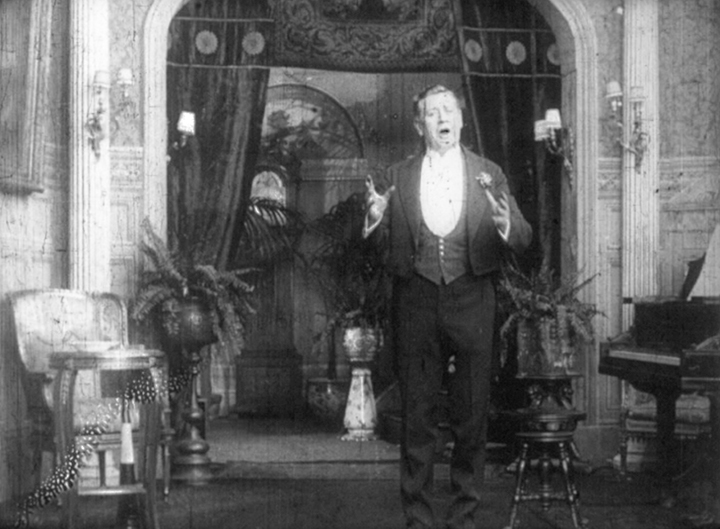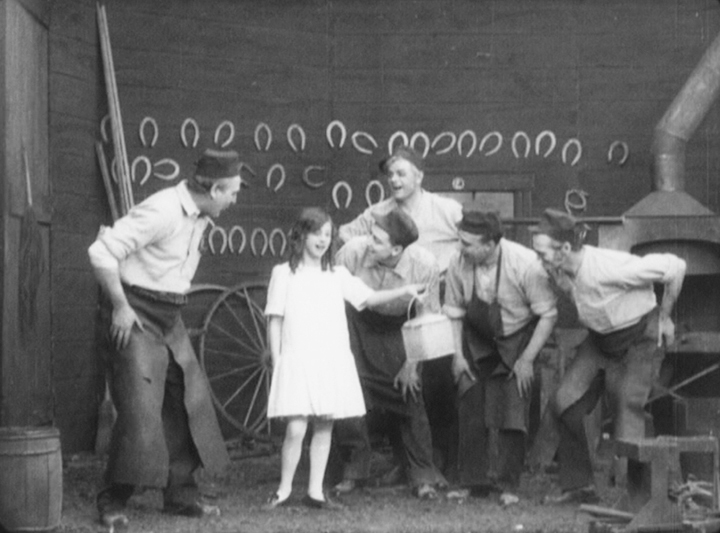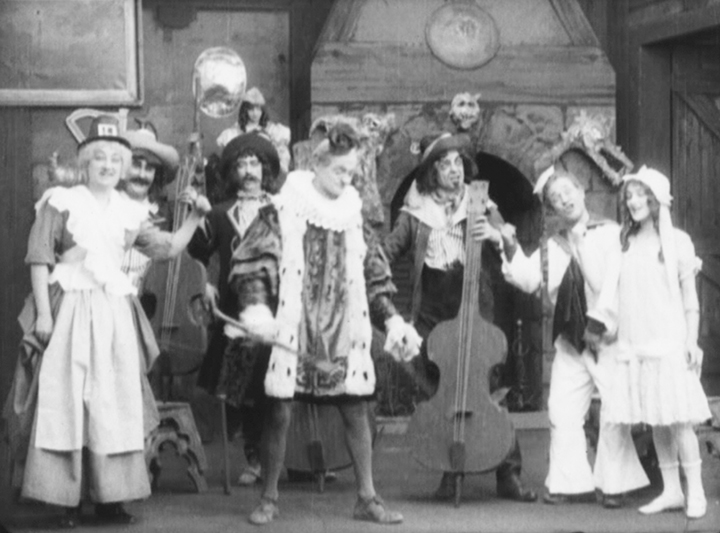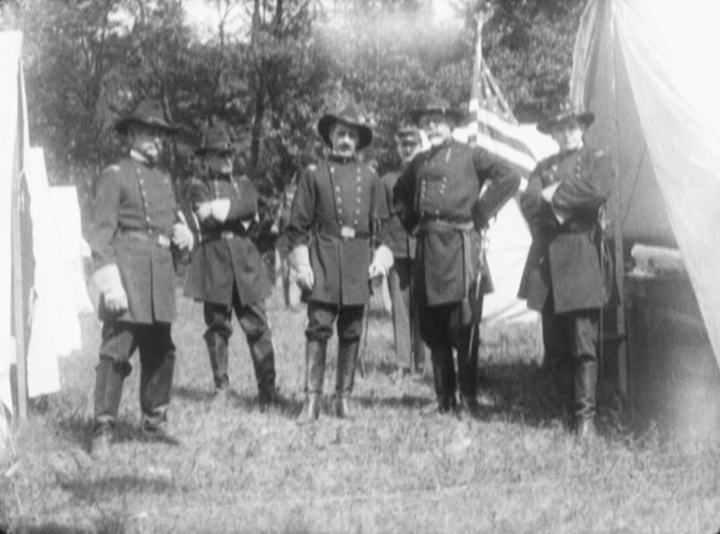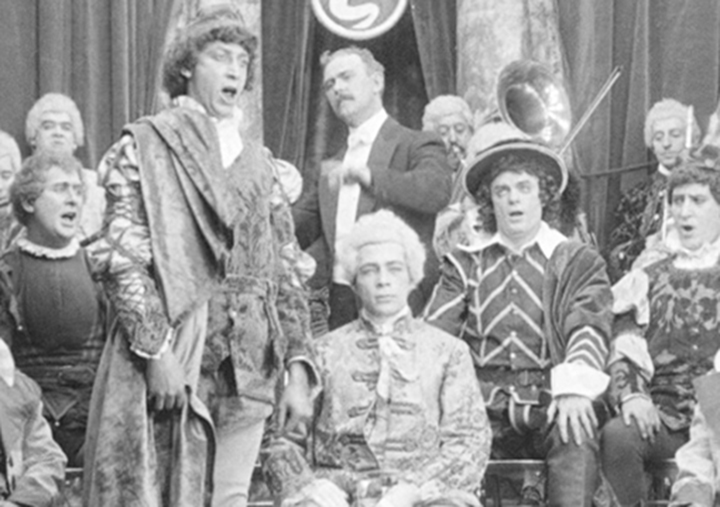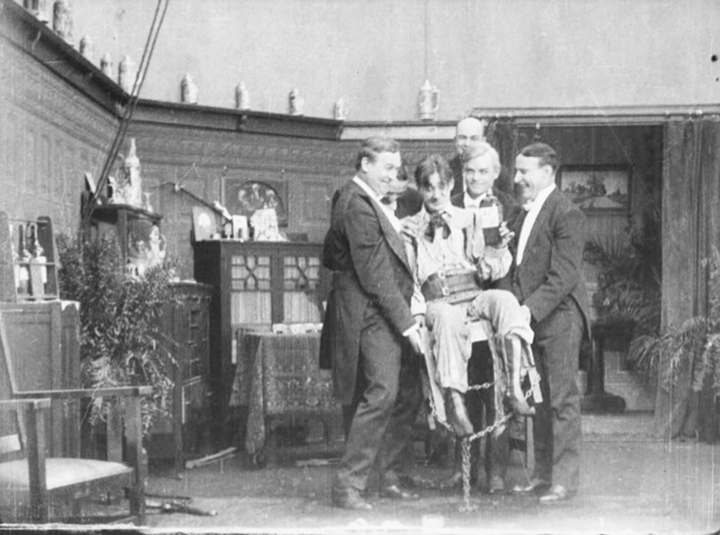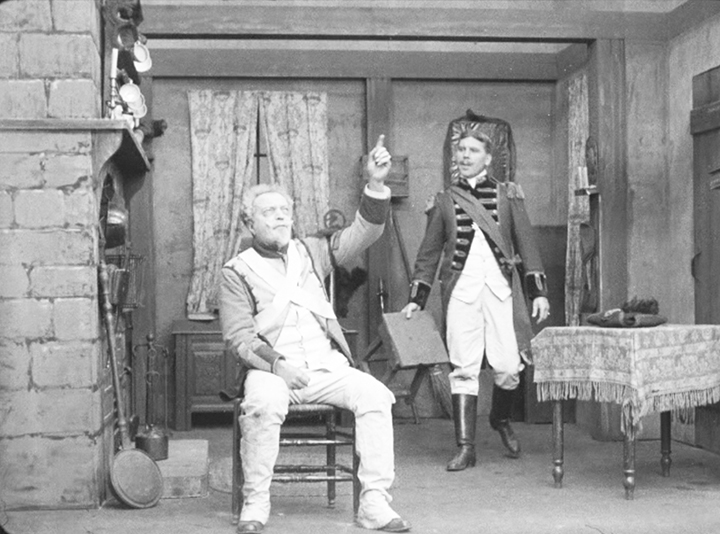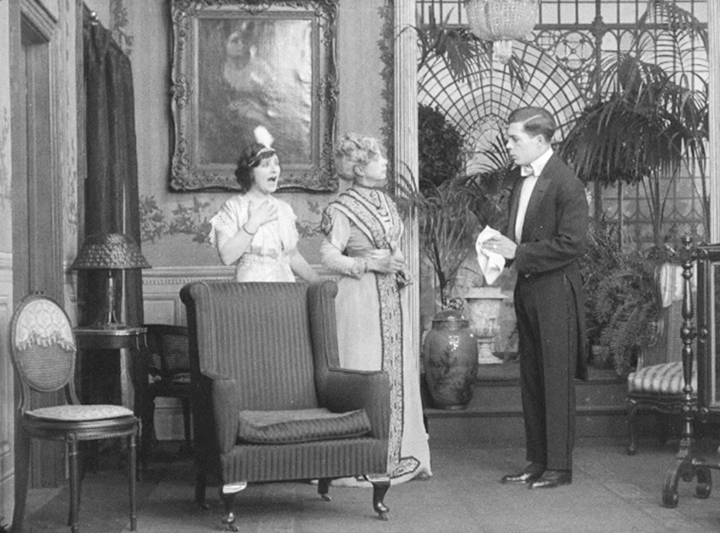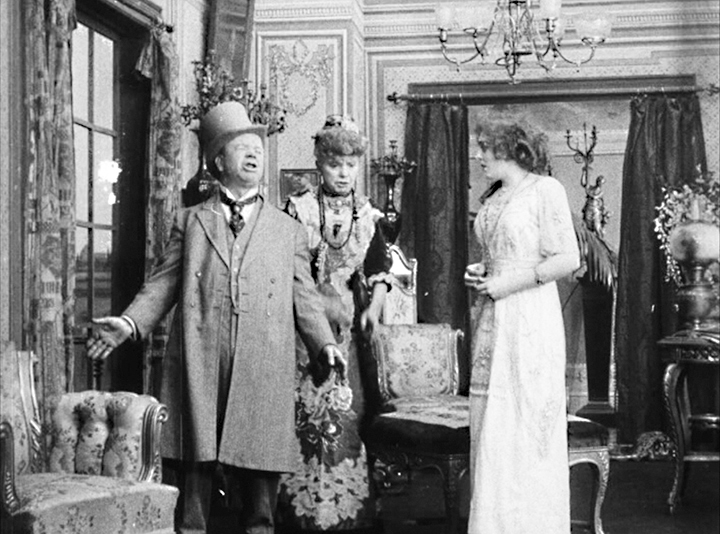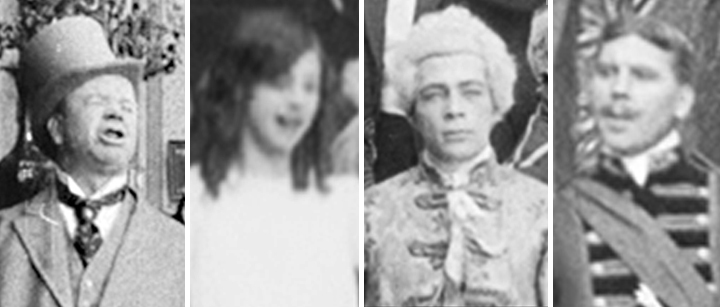
This guy invented everything
By Mark Voger, author, “Groovy: When Flower Power Bloomed in Pop Culture”
Talking pictures from 1913? Wha … ???
If you’re one of those cinematic civilians who thinks “The Jazz Singer” was the first sound film — it wasn’t the first, nor was it all sound — think again.
This week saw the release of “The Kinetophone: A Fact! A Reality!” (Undercrank Productions, $19.95), which presents eight restored sound films released in 1913 — 14 years before “The Jazz Singer.” The films were produced by Thomas Edison, using his complicated, ill-fated invention, the kinetophone.
In today’s Star-Ledger, I have a piece about how the restoration and DVD release came together, which was thanks to a partnership between the Library of Congress and the Thomas Edison National Historical Park in West Orange, N.J. Read the article HERE.
But in that piece, I don’t talk much about the films themselves, which were shot in the Bronx. Following are my impressions of the eight films on the DVD, plus a bonus kinetophone film for which the soundtrack has been lost all these years.
‘The Edison Kinetophone’
At three minutes, the shortest film in the set has a narrator (Allan Ramsey, most likely) extolling the virtues of Edison’s invention. The soundtrack is incomplete — and from a different take, to boot. But fear not. George Willeman of the Library of Congress matched it up perfectly. The film was edited to only reflect the available sound, hence its shorter running time. You won’t know the difference.
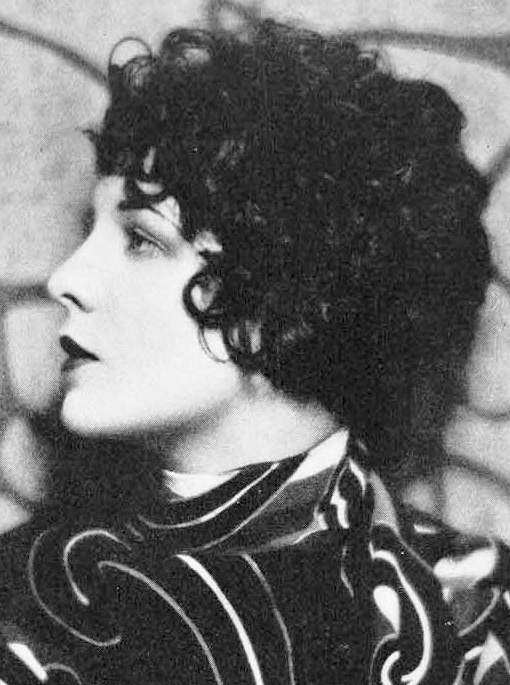
‘Musical Blacksmiths’
The Edison Quartette harmonizes while they hammer, then a little local girl (Little Leonie Flugrath) brings their lunch — an occasion that merits more singing, naturally. The film is simple, but very sweet.
“Little Leonie” grew up to become a rather sexy leading lady in silent movies under the more marquee-friendly name Shirley Mason (see photo at right), in such films as “Flame of Youth” (1920), as Zelda, and “Don Juan’s 3 Nights” (1926), opposite Lewis Stone.
‘Nursery Favorites’
This charming, fanciful short features Old King Cole, Little Miss Muffet (with spider), Jack the Giant Killer and other, well, nursery favorites. It kind of reminds me of Laurel and Hardy‘s “Babes in Toyland.” This is the only film in the bunch that was previously restored, though not nearly on a par with the new restoration.
‘The Deaf Mute’
This Civil War drama is the only film shot outdoors. In it, a farmer discovered at a Confederate stronghold, who claims he can neither hear nor speak, is suspected of being a Union spy.
‘The Edison Minstrels’
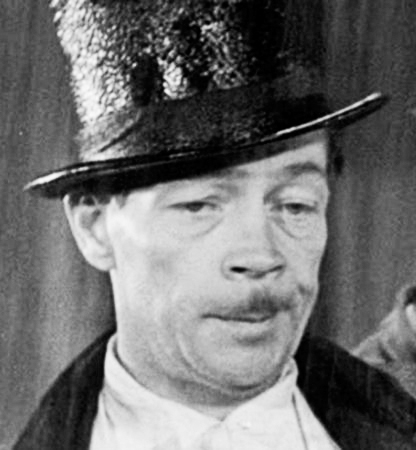
This musical short is preceded by a disclosure: “Its depiction of attitudes toward race and ethnicity and its use of blackface are difficult to watch today … (the film is) included here as a historical and cultural artifact of its time.”
The host of the piece, sitting at center, is played by Arthur Housman, who later made a career in Hollywood playing drunks. You might remember him in such Laurel and Hardy comedies as “Our Relations” and “The Flying Deuces.”
“The Edison Minstrels” was filmed twice, once for the United States and once for England. This restoration meticulously matches the wrong soundtrack to the right film — or do I have that vice versa? Only the song at the big finish (“The Star-Spangled Banner” for the U.S., “God Save the Queen” for the U.K.) gives away the game.
‘The Five Bachelors’
This is an amusing short about a torturous initiation into a fancy bachelor’s club. We’re talking boozeboarding, to coin a phrase, and, of course, paddling. The harried candidate is played by Edward Boulden. The good-old-boy club members are played by the all-purpose Edison Quartette.
‘The Old Guard’
This drama, about a fateful meeting between a young French officer (Albert H. Busby) and an elderly colonel (Williams Bechtel) who lives with his granddaughter (Cora Williams), has the one special effect in all of the films: the “ghost” of Napoleon appears via superimposition. This is unusual since otherwise, the films have no apparent post-production visuals — no cutaways, no closeups, no superimposed type, etc.
‘Jack’s Joke’
An old joke played well, in which that scamp Jack (Boulden) convinces his girlfriend Bess (Nellie Grant Mitchell) and his buddy Ned (Housman) that both of them are “stone deaf.” But the joke’s on Jack. After recovering from the gag, Bess and Ned decide to paint the town … without Jack.
‘The Politician’
This “Irish comedy” really looks hilarious. Unfortunately, it’s the one kinetophone film of the bunch for which the soundtrack is still missing. “The Politician” would have been hard to follow without the audio, but Willeman tells us the punchline on the DVD’s accompanying documentary.
Unprepared to give a scheduled speech from a balcony, top-hatted politician Kelly (Edward O’Connor) has his daughter Honoria (Elsa MacLeod) read to him from the newspaper, which he loudly repeats as if it is his speech. Apparently, Honoria reads from the wrong newspaper, and garbage comes flying from the throng below.
Undercrank’s Ben Model, the silent movie’s best friend, provides the piano score.
This is film history — not to mention, a great way to spend 76 minutes. Order “The Kinetophone: A Fact! A Reatity!” HERE.
